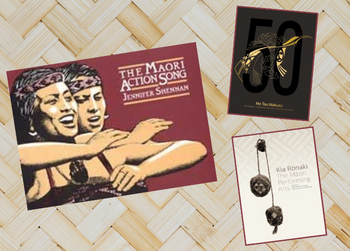Ka mau te wehi! Te Matatini Herenga Waka Herenga Tangata kicks off in Tāmaki Makaurau Auckland today following a four year hiatus, after the 2021 festival was postponed due to the pandemic. Te Matatini (the many faces) is often described as the Olympics of kapa haka and is the pinnacle event for Māori performing arts, where kapa haka rōpū from across Aotearoa compete over four days to be crowned Toa Whakaihuwaka – the champions of Te Matatini. Te Matatini turned 50 in 2022, so the 2023 festival also celebrates this incredible milestone.
The most recent Te Matatini festival, Te Matatini ki te Ao, was hosted by Te Whanganui-a-Tara Wellington in 2019 and saw 3000 participants performing in front of a global audience of 1350000! This year, 48 rōpū from across Aotearoa and two from Australia will be taking the stage at Ngā Ana Wai Eden Park, with the nine finalist teams performing on Saturday.
Explore our booklist below, featuring old and new pukapuka about Te Matatini, kapa haka and the history of waiata and Māori performing arts in Aotearoa. We’re especially excited for the arrival of He Tau Makuru, specially released to celebrate the 50th anniversary of Te Matatini, and we also have some picture books about kapa haka. Kia pai tāu pānui! Happy reading!
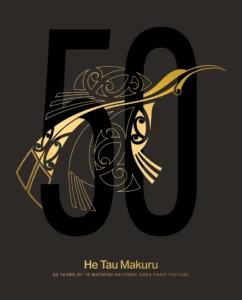 He Tau Makuru : 50 Years of Te Matatini National Kapa Haka Festival
He Tau Makuru : 50 Years of Te Matatini National Kapa Haka Festival
“Te Matatini (the many faces) is the world’s largest celebration of contemporary Māori performing arts – the Olympics of kapa haka. This national kapa haka festival is held in Aotearoa New Zealand every two years. In 2022, Te Matatini celebrates its fiftieth year, and this book (alongside an album and web series) honours the festival.” (from publisher’s site).
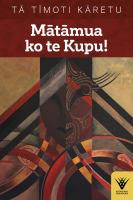 Mātāmua ko te kupu! : te haka tēnā! te wana, taku ihi e, pupuritia / Kāretu, T. S.
Mātāmua ko te kupu! : te haka tēnā! te wana, taku ihi e, pupuritia / Kāretu, T. S.
“Sir Timoti Karetu is one of the country’s leading exponents of te reo Māori. He is also an unrivalled creator of waiata and haka, composing songs and judging at Te Matatini and other events. In this book, Sir Timoti shares his extensive experience in the artforms of haka and waiata – from Māori songs of the two world wars to the rise of kapa haka competitions, from love songs to action songs, from Sir Apirana Ngata to Te Puea Herangi, and from Te Matatini to contemporary hui on marae. Written in exemplary te reo Māori, Matamua ko te Kupu! will become a taonga of Māori knowledge and language.” (Adapted from catalogue)
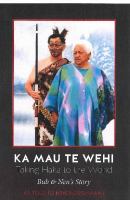 Ka mau te Wehi = Taking haka to the world : Bub & Nen’s story / Wehi, Ngapo
Ka mau te Wehi = Taking haka to the world : Bub & Nen’s story / Wehi, Ngapo
“Ngapo and Pimia Wehi, affectionately known as Bub and Nen, have achieved what no other partnership has accomplished in a lifetime of kapa haka. With over a century of combined experience in Māori song and dance, leading teams and teaching, they are recognised as New Zealand’s foremost leaders in this ever-expanding arena. Ka Mau Te Wehi is a rare insight into Bub and Nen’s private lives and their journey to enhance the Māori culture they so dearly loved. Additionally, it offers a personalised history of contemporary Māori music and performance over more than half a century, surveying the origins of modern kapa haka and the path of its intense growth as a national and international phenomenon.” (Adapted from catalogue).
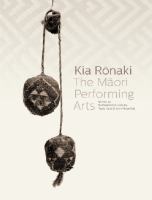 Kia Rōnaki = The Māori performing arts
Kia Rōnaki = The Māori performing arts
“In the last thirty years there has been an explosion of interest in the Māori performing arts but until now there has been no general book written in English or Māori about the Māori performing arts by Māori authors and exponents of the various genres. This new work, brings together the expertise of a range of performance artists and academics, consolidating their knowledge into a comprehensive single volume that will be of relevance to all those interested in the Māori performing arts.” (Catalogue)
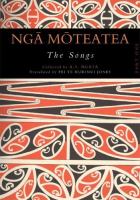 Ngā mōteatea : he maramara rere nō ngā waka maha / Ngata, Apirana Turupa
Ngā mōteatea : he maramara rere nō ngā waka maha / Ngata, Apirana Turupa
“This classic text on Māori culture collects indigenous New Zealand songs recorded over a period of 40 years by a respected Māori leader and distinguished scholar. The essence of Māori culture and its musical tradition is exhibited in the original song texts, translations, audio CDs, and notes from contemporary scholars featured in this new edition. This rare cultural treasure makes accessible a fleeting moment in Māori history when traditional practices and limited experience with the outside world allowed indigenous songs and customs to flourish.” (Catalogue)
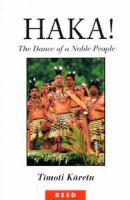 Haka : te tohu o te whenua rangatira = the dance of a noble people / Kāretu, T. S.
Haka : te tohu o te whenua rangatira = the dance of a noble people / Kāretu, T. S.
“All New Zealanders are familiar with haka, especially the famous ‘Ka mate ka mate’, but few would be able to describe what haka really is. Timoti Karetu describes the various types of haka and their different roles in Māori customs.” (Catalogue)
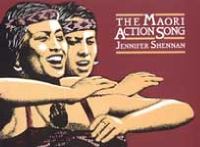 The Māori action song : waiata a ringa, waiata kori, no whea tenei ahua hou / Shennan, Jennifer
The Māori action song : waiata a ringa, waiata kori, no whea tenei ahua hou / Shennan, Jennifer
“This book is a discussion of Māori action songs. A number of the earliest action songs are remembered and performed as classics up to 60 years later. Recent developments have taken the action song away from the simplicity of its earliest form with borrowed European melodies, to more sophisticated compositions including dramatic effects with interpolated haka rhythms. It is this process-the instinctive moulding of innovated movement into the aesthetically acceptable dance style-which makes absorbing study.” (Adapted from catalogue)
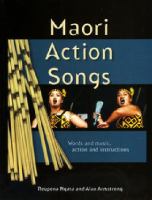 Māori action songs : words and music, action and instructions / Ngata, Reupena
Māori action songs : words and music, action and instructions / Ngata, Reupena
“The action song is a modern addition to Māori performing arts, pioneered in the early twentieth century by Sir Apirana Ngata. Almost a century after it first appeared, the waiata kori (action song) is flourishing among kapa haka groups up and down Aotearoa. Māori Action Songs is the classic introduction to this distinctive art form – ideal for teachers, groups or individuals. This new, totally redesigned edition presents a concise introduction to the important elements of the songs, and outlines in simple terms 30 songs for different occasions with words, music and actions described in easy-to-follow diagrams.” (Catalogue)
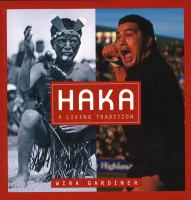 Haka : a living tradition / Gardiner, Wira
Haka : a living tradition / Gardiner, Wira
“A source of pride or a source of controversy, the Haka is an integral part of New Zealand’s culture. One of the most identifiable symbols of New Zealand, most people know little of the history, variation or meaning of this powerful challenge. This work aims to explain it all.” (Catalogue)
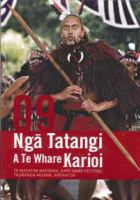 Ngā tatangi a te whare karioi = That special place where uniquely Māori sounds are created / Te Matatini National Kapa Haka Festival
Ngā tatangi a te whare karioi = That special place where uniquely Māori sounds are created / Te Matatini National Kapa Haka Festival
“A record of the key events of Festival 2009″ — Chairman’s introd.” (Catalogue)
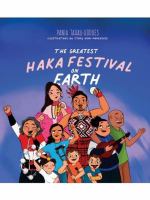 The greatest haka festival on earth / Tahau-Hodges, Pania
The greatest haka festival on earth / Tahau-Hodges, Pania
“It’s national kapa haka competition time again, and this Māori performing arts festival is a big event! It needs planning, tactics and dedication – and that’s just for the people watching! Nan’s a hardcore kapa haka follower, and she shows her mokopuna all the tricks to get the best seats, find the choicest pāua and whitebait fritters, hunt out the coolest poi and pounamu, and meet the star performers. And all along, Nan’s keeping a big secret that’s only revealed when the star performer does Nan’s amazing signature poi move – and her group wins the competition”–Publisher information.” (Catalogue)
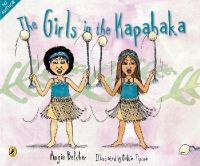 The girls in the kapahaka / Belcher, Angie
The girls in the kapahaka / Belcher, Angie
“A children’s kapahaka group prepare for a kapahaka with the help of their whanau. Includes glossary of Māori terms. Suggested level: junior, primary.” (Catalogue)
Te Matatini National Kapa Haka Festival 2009, 19-22 February / Te Matatini National Kapa Haka Festival
Includes brief biographies of judges, emcees and kapa haka teams.
Chiefly in English with some text in Māori.
Nga Waiata me nga haka a te kapa haka o Te Whare Wananga o Waikato
Māori songs with English translations.
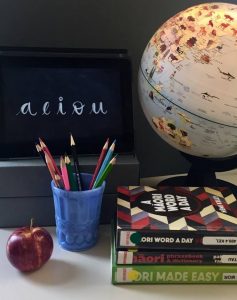


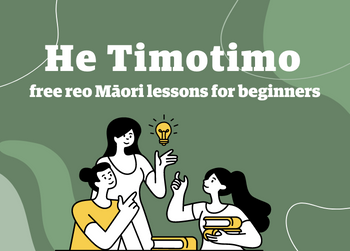
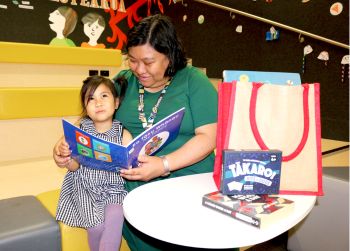


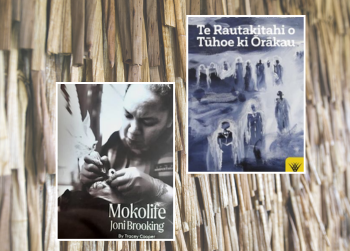
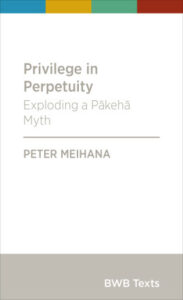

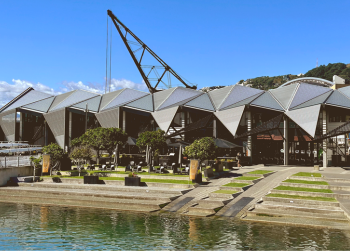
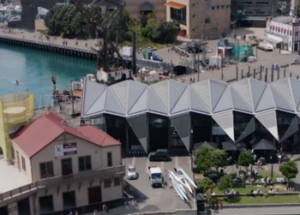
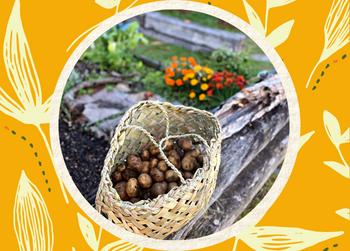
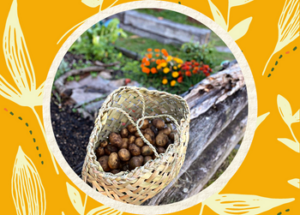 ‘Mā Tōu Rourou, Mā Tāku Rourou, Ka ora ai Te Iwi’
‘Mā Tōu Rourou, Mā Tāku Rourou, Ka ora ai Te Iwi’